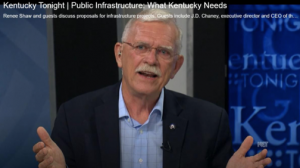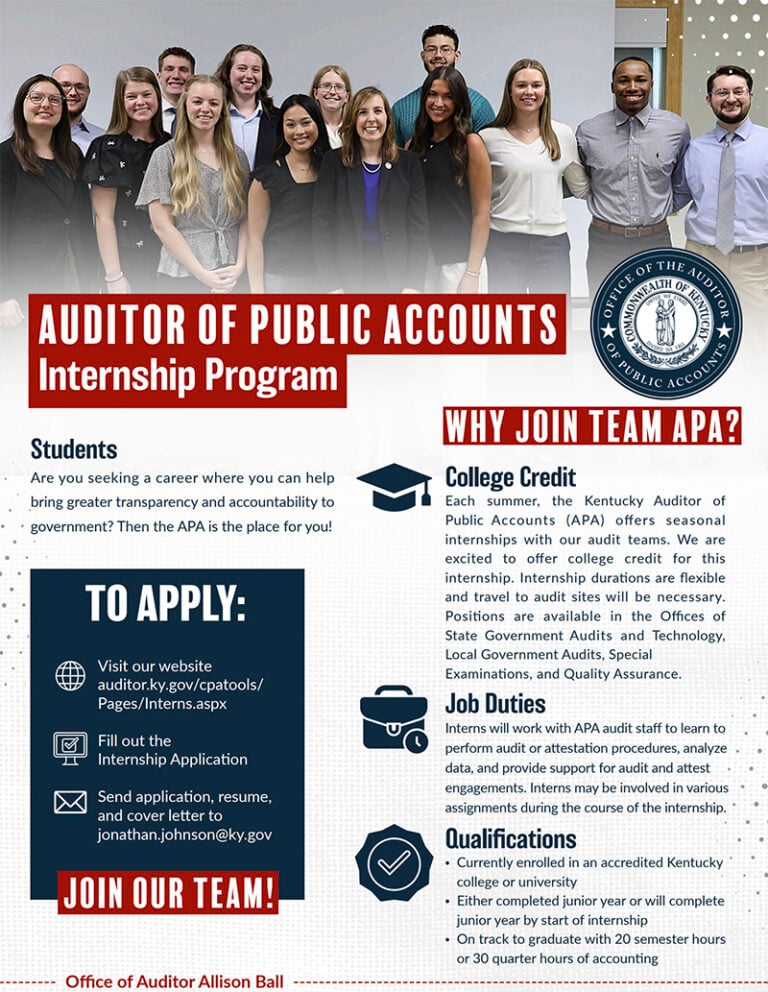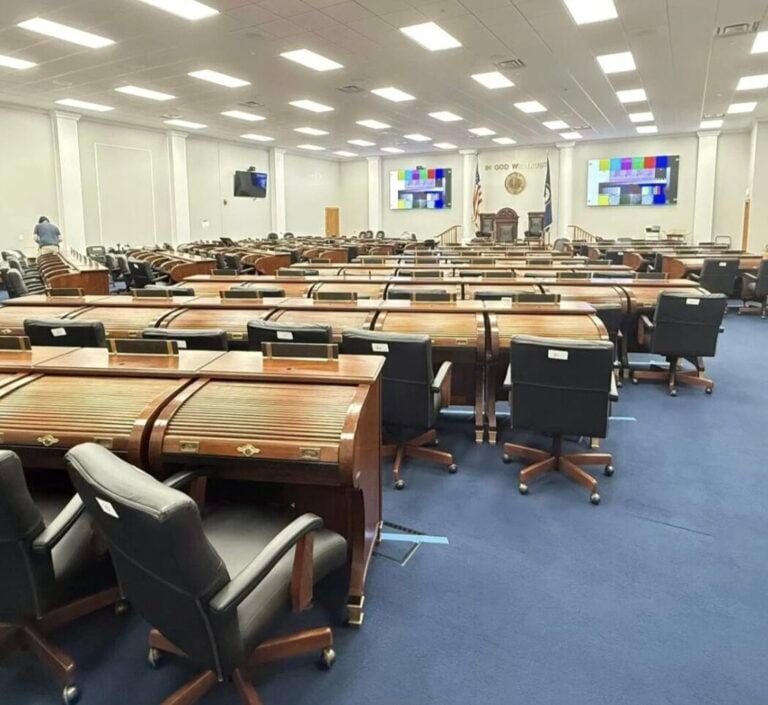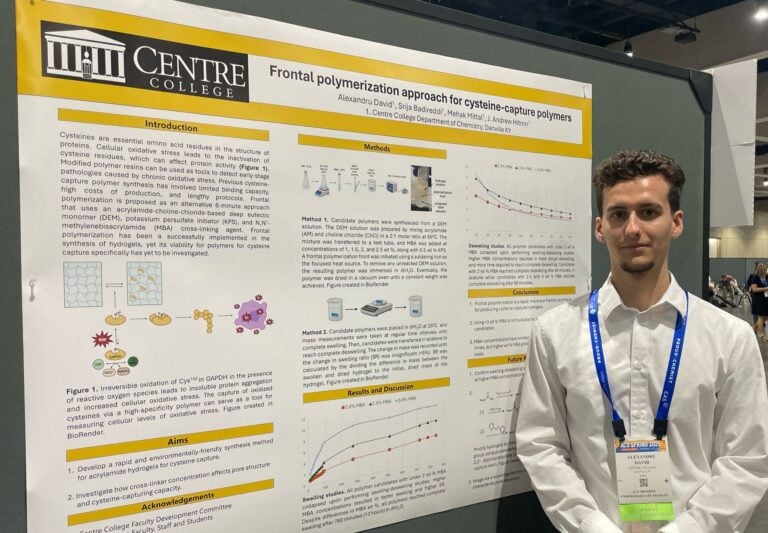Covington Mayor Joe Meyer appeared live on the statewide program “Kentucky Tonight” on Monday evening with Renee Shaw to join in a discussion about the state’s infrastructure.
Other guests on the program included Transportation Secretary Jim Gray, League of Cities director J.D. Cheney, Chad LaRue of the Kentucky Association of Highway Contractors and others.

Mayor Meyer spoke in depth about Covington’s concerns with the plan as currently designed to “fix” the Brent Spence Bridge by building a companion bridge next to it, and then tolling it.
To hear a succinct and passionate summary of those concerns, click on the program HERE. (Meyer first starts talking at 25:40.)
The mayor explains the inequity of where tolls would be charged, the impact of “diverted” traffic on Covington’s streets, the expected traffic jams when eight lanes drop off to four, the cost of public safety response, and the devastation to neighborhoods and business districts that would be caused when an eight-lane bridge is built in the city.
“This project, the way it’s designed, is making Covington and its people and its neighborhoods and its businesses collateral damage to a project that really doesn’t serve us very well,” Meyer said.
Covington Mayor Meyer is among the local and state politicians who oppose the idea of charging drivers to cross the bridge. He says Kentuckians commuting to work in Cincinnati would pay a bigger share of the tolls, yet the Commonwealth would receive a smaller percentage of tolling revenues than Ohio. He also says research indicates that drivers of as many as 77,000 vehicles a day would seek alternate routes to avoid paying a $2 toll. Meyer fears many of those people would wind up clogging Covington streets, as they did last year when the bridge was temporarily closed.
The mayor contends the solution doesn’t have to involve laying more pavement. For example, he says a better, cheaper option would be to divert I-71 traffic around Cincinnati by using the existing I-471 or I-275 bypasses. He says that would reduce the impacts on Covington, eliminate the burden of tolls, and relieve congestion and improve safety on the Brent Spence Bridge.
“We need to think about these transportation issues in a different way,” says Meyer. “We just can’t keep widening and widening and widening, and pretend it’s going to solve the problem because it doesn’t.”
Later he talks about how the state’s funding formula for public roads treats cities unfairly.


















